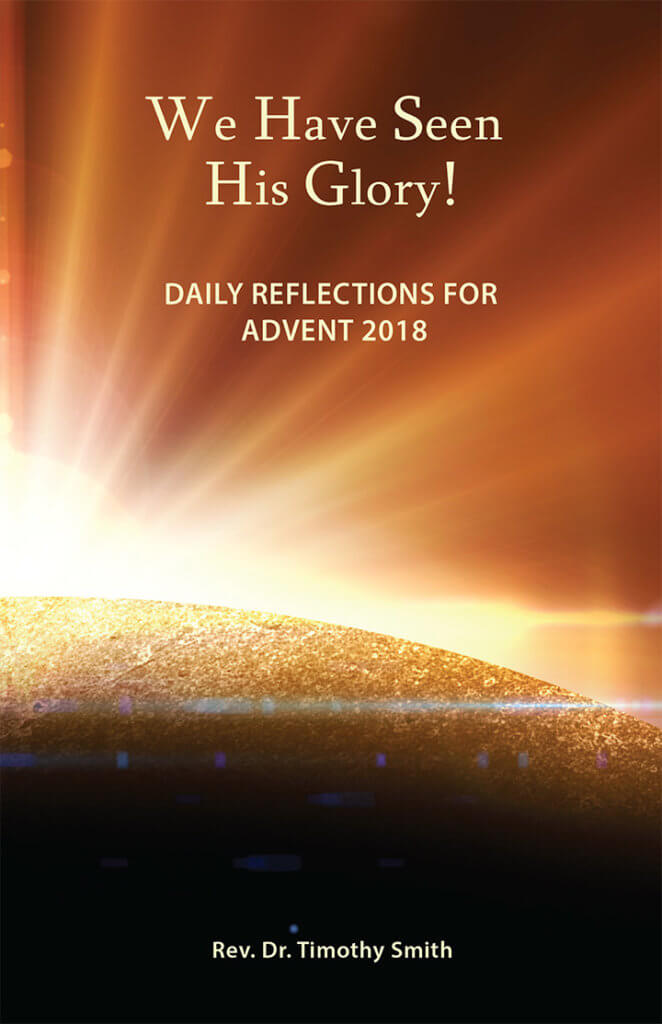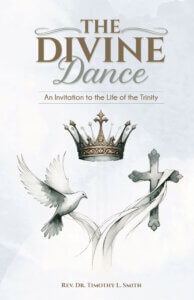PRAY
“Speak Lord, for your servant is listening” (1 Samuel 3:10).
READ
The light shines in the darkness, and the darkness did not overcome it.
There was a man sent from God, whose name was John. He came as a witness to testify to the light, so that all might believe through h.
He himself was not the light, but he came to testify to the light. The true light, which enlightens everyone, was coming into the world.
John 1:5-9
I am not sure what I was expecting to see, but there under thick glass were dull, concrete gray rocks and pebbles rocketed a quarter-million miles from the moon to the earth. I thought of how those moon samples didn’t look anything like the dazzling, radiant moon shining on us at night. Then I realized that the moon has no light in itself, but only reflects the brilliant splendor of the sun.
I think of that as I read about John the Baptist, who had no light in himself, but whose mission was to point people to the light of Jesus. The Gospel emphasizes that John the Baptist was not the light of God because many people thought he was the promised Messiah (Luke 3:15). They believed John the Baptist was the fulfillment of Isaiah’s ancient prophecy: “I will give you as a light to the nations, that my salvation may reach to end of the earth” (Isaiah 49:6b). After he died there were people still devoted to him, according him the highest place (Acts 18:25; 19:1-7). Even today there is a small Mandaean sect south of Baghdad, hostile to Christianity, yet preaching John the Baptist as their prophet.
Thus, we see the Gospel is careful to emphasize that John the Baptist was “a man sent by God”, in contrast to Jesus who is God. God closed out the Old Testament with His promise of John the Baptist’s coming to prepare the way for the Lord: “See, I am sending my messenger to prepare the way before me...” (Malachi 3:1).
Isaiah also foretold the divine mission of John the Baptist in words we love to hear from Handel’s Messiah: “The voice of him that crieth in the wilderness; prepare ye the way of the Lord; make straight in the desert a highway for our God” (Isaiah 40:3 KJV). That is why in many churches the first candle lit for Advent is called the Prophet’s Candle. For four hundred years, from the prophet Malachi to the disciple Matthew, the voice of the prophets was silent; then came the voice of John the Baptist!
John the Baptist understood his place in the scheme of things: he was the voice, but Jesus was the Word. John was not the light of God for the world, but a witness to that Light. It is beautiful to watch John the Baptist; he always knew it was not about him, but about Jesus. We see him living boldly, confident he was sent by God to point people to Jesus.
And as people began turning from following John the Baptist to following Jesus, John happily responds: “For this reason my joy has been fulfilled. He [Jesus] must increase, but I must decrease” (John 3:29b-30). I like how The Message translation renders these words of John about Jesus: “This is the assigned moment for him [Jesus] to move to the center, while I slip off to the sidelines.” William Barclay nicely captures the joy that fired John the Baptist:
“It was not with envy he said that Jesus must increase and he must decrease; it was with joy. It may be that sometimes we would do well to remember that it is not to ourselves we must try to attach people; it is to Jesus Christ. It is not for ourselves we seek the loyalty of men; it is for him.” (William Barclay, The Gospel of John, Vol. 2)
As a minister I know how tempting and easy it is to make church and ministry about self, rather than about Jesus. The temptation of grandiosity lurks in wanting to be known for doing a great work for God, to be known for being so very humble. I am always put in my place by the words of Mother Teresa to anyone wanting to do a great work for God: “Find something small to do, and do it with great love.”
John the Baptist found what God had sent him to do: point people to Jesus. He discovered early on the secret of greatness, “Jesus must increase, but I must decrease!” (John 3:30). Oh to reflect to the world the light of Jesus! What joy!
PONDER
-
- What might it mean for me, like John the Baptist, to ‘slip off to the sidelines’ in order for Jesus ‘to move to the center’?
- What is something small I can do today with great love?
PALMS DOWN/PALMS UP
For a moment hold your PALMS DOWN in a symbolic gesture of letting go to God your worries for the day, the busyness of the season, and expectations of the way the holidays ought to be. Release all of these concerns to God.
Next, hold your PALMS UP as a symbolic gesture of receiving God’s gifts, provision, and guidance for today.


